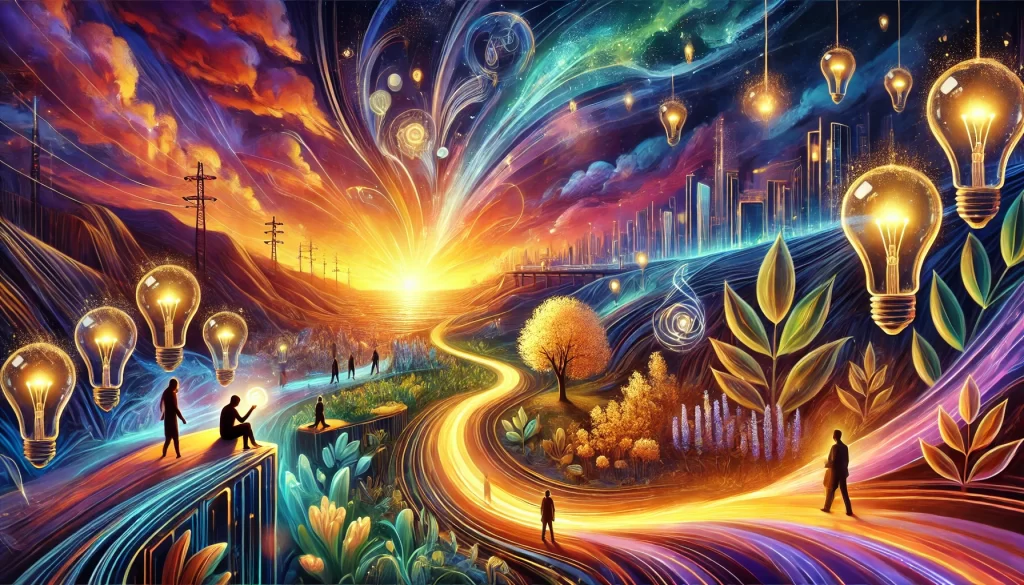
People are often confused when I tell them that I don’t work in the way they’re asking about.
The question usually comes with friendly curiosity: “You work hard. So, what do you do for fun?” And my answer seems to throw them off every time: “Not sure what you are asking, but I have fun all the time. I don’t chase it. I don’t commission fun as a separate event.”
There’s an embedded assumption in that question, one we rarely pause to examine: that work and joy live in different neighborhoods. That “real” life begins only after the laptop is shut, the deadlines are met, and the weekend has permission to arrive. But what if the opposite were true? What if you didn’t need to escape your work to find your joy?
I’ve come to realize that I don’t wait for Friday. And I don’t mean that in a hustle-culture, rise-and-grind, motivational poster kind of way. I simply mean that I don’t postpone fulfillment. I don’t save joy for evenings or hobbies or vacations. The life, that I believe, I’ve designed allows me to enjoy what I do, when I do it, how I do it. So when I’m working at 1:00 am, I’m not sacrificing sleep for success – I’m following a thread of energy I want to follow. Because when the work is right, it doesn’t feel like work. It feels like alignment.
This isn’t a prescription; it’s a possibility. And it begins with a question too few of us stop to ask: What if work didn’t have to feel like a transaction? What if it could be an expression of who you are, what you believe, and what you’re here to contribute?
There’s a quote that floats around, attributed in different versions to Confucius or Mark Twain or some well-meaning LinkedIn post: “Choose a job you love, and you’ll never work a day in your life.” But it’s a misleading idea, not because it’s wrong, but because it’s incomplete. The goal isn’t to avoid work. The goal is to avoid disconnection. It’s not the labor that exhausts us; it’s the misalignment. It’s spending 90,000 hours of your life – because yes, that’s about the average – doing something that doesn’t reflect your values, your voice, or your vision of the world.
And that’s the real problem. Not overwork, but wrong work.
Work becomes meaningful – and yes, I can assure you, even joyful – when it activates your core beliefs, lets you solve problems that matter to you, and lets you stretch, evolve, and contribute in ways that feel alive. It’s less about the tasks you perform and more about the energy you bring to them. Fun isn’t something you go find. It’s something you build in – through intention, curiosity, and the audacity to design your life around what matters most to you.
That’s not always easy to explain in casual conversation. We live in a world that still treats “fun” and “work” like divorced parents – cordial but separate. And we’re taught early on to think of work as duty and fun as reward. This creates an invisible architecture around our lives: weekdays vs. weekends, passion vs. profession, joy vs. job. So when someone doesn’t play by those rules – when they find fun in meetings, flow in writing, or meaning in problem-solving – it can feel like they’re breaking some unspoken code.
But I think that code is long overdue for revision.
To be clear, this isn’t about glamorizing burnout or wearing exhaustion as a badge of honor. This is about agency. About the difference between having to work late and wanting to create at midnight. It’s about shifting from survival to design – making conscious choices about how you spend your energy and why. That might mean changing your environment. It might mean redefining success. Or it might simply mean giving yourself permission to stop splitting your life into compartments.
Some people find this kind of integration through entrepreneurship. Others find it in teaching, mentoring, making, building, healing. It’s less about the job title and more about the throughline: Are you showing up as the fullest version of yourself? Are you spending your time in ways that echo your values? Are you choosing your life, or just renting it by the hour?
This is where frameworks like “ikigai” (the Japanese concept of a reason for being) or Mihaly Csikszentmihalyi’s “flow” begin to make sense – not as inspirational posters, but as deeply practical ways of thinking. They invite us to step outside the default path and into something more intentional. And they help us see that fun is not the opposite of work. It’s the outcome of work done well, work done with heart, work done with presence.
The real joy comes not from escaping your job but from integrating your life. From not needing to explain, justify, or carve out a sliver of time just to feel like yourself. From building a life where your work doesn’t feel like a deviation from who you are but a daily expression of it.
So no, I don’t chase fun.
And I don’t count the days to Friday.
I’ve chosen to live in a way where fun and fulfillment are baked into the process, not bolted on as an afterthought. That may not be the norm, but, I strongly believe that, it is the future – for anyone brave and thoughtful enough to build it.
And if you’re still asking, “What do you do for fun?” – you might already be asking the wrong question. Try this instead: “What would it take for your work to feel like a reflection of who you are?” Because when that answer is clear, everything else becomes easier.
Even Mondays. Even 1:00 am.